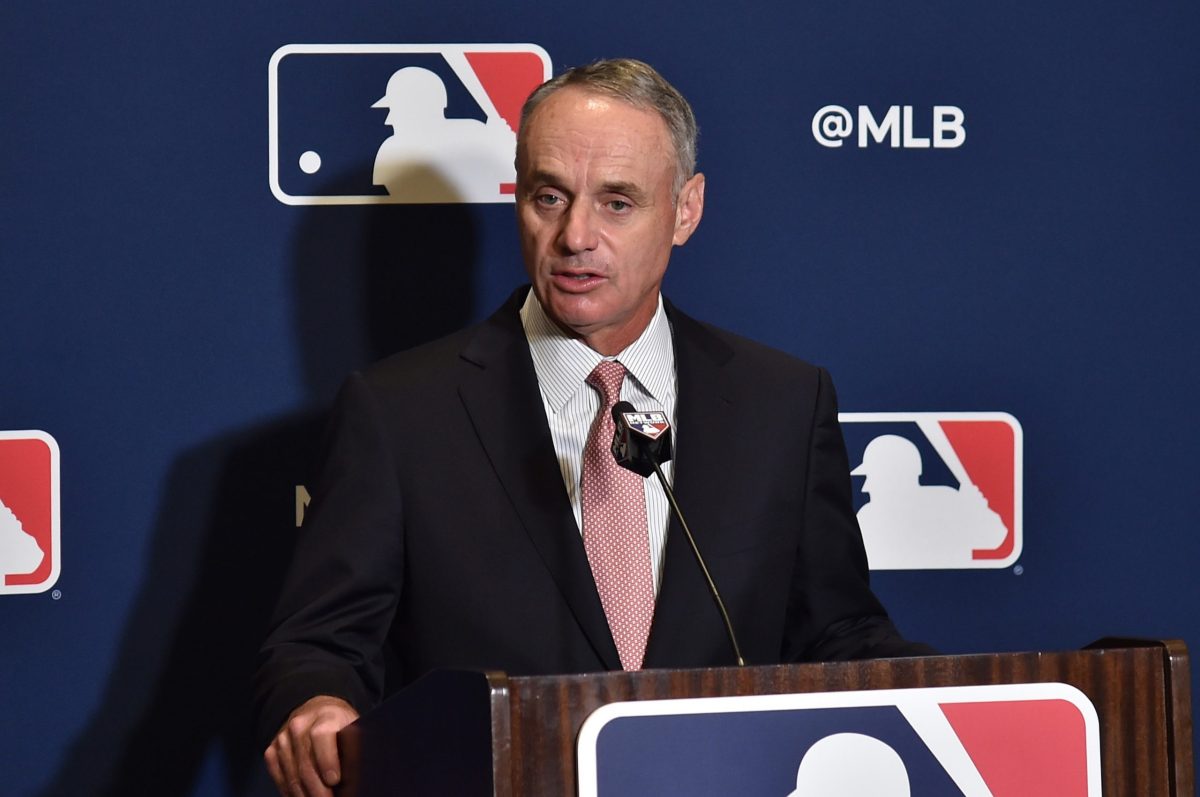Baseball purists, look away.
MLB commissioner Rob Manfred told Dave Sheinin of the Washington Post that this year’s expanded playoff format — which has eight teams per league make the postseason rather than five — is “likely to remain beyond 2020.
Such an idea has gotten a strong endorsement from team owners as an “overwhelming majority,” is already on board.
Strictly from a marketing and financial standpoint, it makes sense. More playoff affairs mean more televised games, which means more revenue on top of a lucrative TV deal that reels in over $700 million for Manfred and MLB. And that comes in an inaugural year where there are no fans in attendance. Once supporters get the green light to get back to the ballpark, gate revenues can be added on top of that.
At the same time, however, this doesn’t make fielding the best possible product for teams around the league a top priority.
What has fueled baseball’s postseason magic and parity over the years is an organization’s need to have to build an 85-to-95-win team just to get into the selective postseason. Unlike the NHL or NBA, half the teams in MLB didn’t get a pass to the playoffs — especially those that spent the entire year flirting with the .500 mark.
In a truncated 60-game schedule, that aspect alone is somewhat lost. In the American League, the Houston Astros entered Wednesday as the final playoff team with a .500 record. The seven teams on the outside looking in are at least four games under .500.
Over in the National League, the two current Wild Card teams — the San Francisco Giants and St. Louis Cardinals — are under .500. Four teams are within 2.5 games of that last spot including the New York Mets, who are six games under.
What happens next season when a couple of 78-84 teams make the postseason as Wild Cards? It’s difficult to legitimately say they deserve an opportunity to compete for the World Series.
Such an idea ultimately impacts the product on the field, giving owners a pass on pumping funds into their teams to make them true contenders.
Why spend that extra cash to add 10 wins to your seasonal output when you can snag a No. 8 seed effectively back your way in? Especially when there are no added incentives for the top teams in each league, like getting an automatic bye into the divisional series as it had been in years past.
Such a system awards mediocrity more than anything and takes the exclusivity out of a postseason that makes baseball’s path to a championship that much more special.




































